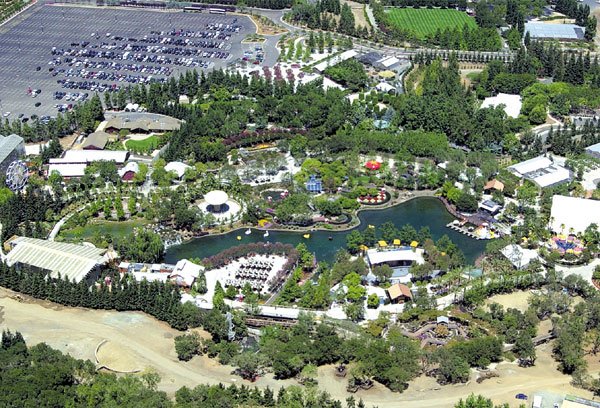A year and a half after the city bought the 536 hilly acres
beneath Gilroy Gardens for $13.2 million, the city council
collected its first lease payment: $400.
A year and a half after the city bought the 536 hilly acres beneath Gilroy Gardens for $13.2 million, the city council collected its first lease payment: $400.
That’s a 0.003 percent return on investment, but then again, Gilroy Gardens is a nonprofit theme park that maintains the entire property for the city and employs more than 500 people. That’s why Councilman Dion Bracco, who also sits on the park’s board of directors, voted to renew the park’s lease for another year. The board pays the city 10 percent of its earnings before interest, taxes, depreciation and amortization – essentially the profit. In last year’s case, that was $4,000 before debt and taxes are subtracted.
“The money the city has invested in the park is not lost. We own that property, and if Gilroy Gardens leaves tomorrow, we still own a very valuable piece of land,” Bracco said.
The $13.2 million figure represents how much the park’s outstanding bonds were worth before the city bought them. At the time of purchase, investors valued the land around $60 million.
While city officials won’t receive an independent audit of the park’s finances until September, the last public financial documents released for the 2007-08 fiscal year showed the park lost about $1.9 million but still had more than $1 million in reserves. City Finance Director Christina Turner said the $400 lease payment likely indicated the horticultural attraction lost money again this year, but Bracco said ticket sales are climbing because of the park’s upcoming 10th anniversary.
That wasn’t enough for Councilman Craig Gartman, who was the only council member to vote against renewing the park’s lease Aug. 3. He pointed to former Assistant City Administrator Anna Jatczak’s estimates in 2007 that the park earned about $258,000 annually, which translated to an annual lease payment of about $25,800.
“I don’t think it’s right for us as a city to be essentially giving them the land for free. We could’ve made a heck of a lot more money just having that cash sitting in the bank instead of subsidizing a nonprofit,” Gartman said.
Gartman joined a unanimous council in January 2008 to approve the purchase of the park. The city owns the 536-acre horticultural park and all of its rides and buildings that it leases back to the board. The board contracts with Cedar Fair, which owns 15 additional amusement parks, to operate the venue.
The council has the power to dissolve the park whenever it wants – and for whatever reason – with a simple majority. If the park fails on its own, though, it would naturally fall into city hands without a council vote. Either way, the city would need to find another tenant or use for the land.













